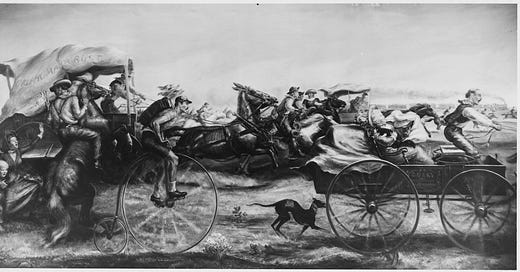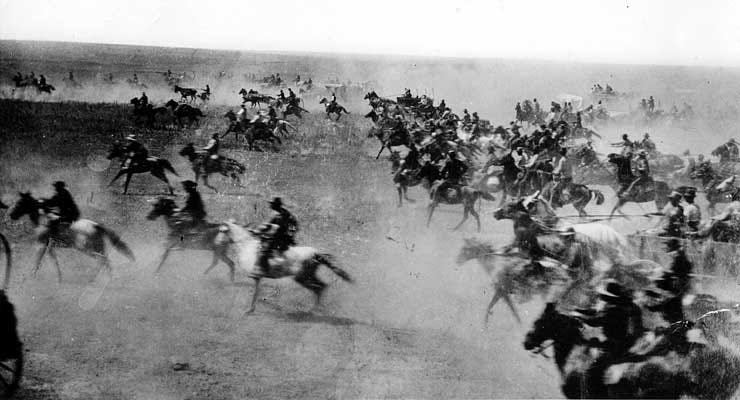Unless you’re a history geek, you’ve probably never heard of U.S. President Benjamin Harrison, the grandson of former U.S. President William Henry Harrison.
Of course, there is probably a good reason. Even though he’s probably the reason we have national forests, and though he contributed to major reforms to the way we handle tariffs (he wanted the president to have some role in determining tariff rates, and he got his wish—a fact that has recently become pertinent in the news cycle), his presidential decisions were rarely of the caliber that actually make an impression on high school students reading history books.
But those kinds of decisions were hardly the most important of his presidency.
In the wake of the Civil War, Americans discovered that they had something of a land problem. It’s true that the nation, spanning a large portion of the North American continent, had more land than it could figure out what to do with. But the problem, as far as American farmers were concerned, was that most of it seemed unfarmable.
That, until the 1870s and ‘80s, was true of modern-day Oklahoma, and for that reason, most of it had been assigned to relocated Indian tribes. But by 1887, Americans were interested in assimilating their Native American neighbors and encouraged them to engage in European-American farming practices by dividing land formally owned by the tribe into 160-acre plots owned by families.
But two years later, it became apparent to President Harrison (and to American farmers who had finally figured out how to farm in Oklahoma’s unique soil) that there was plenty of unassigned land in the state. So he did the most obvious thing in the world: he set up a land race.
On April 22, 1889, at precisely noon, 50,000 American settlers who had spent weeks living in tent cities along the border of the territory were set loose to claim the previously unclaimed land. By nightfall, the land was gobbled up, and cities (like Norman, Guthrie, and Oklahoma City) had appeared out of nowhere.
It was a bit of a hectic mess. Courts spent years trying to figure out who had jumped the gun and who had committed fraud to obtain their land. Eventually, the federal government decided that a lottery system was probably a better way to handle future land rushes. In just 16 years, even the Indian Territory that had been claimed by Native American tribes was gone. Two years after that, Oklahoma entered the Union as a state.
We sometimes forget how eager our early American forefathers were to settle and farm their own land. Arguably, such a desire comes from a very natural place. Men wish to possess, in the words of Englishman Sir Edward Coke, their own castles. In the excess, that desire sometimes looks like men lining up in wagons, on horseback, and on foot at the border of a territory hoping to claim a wild plot of land.




